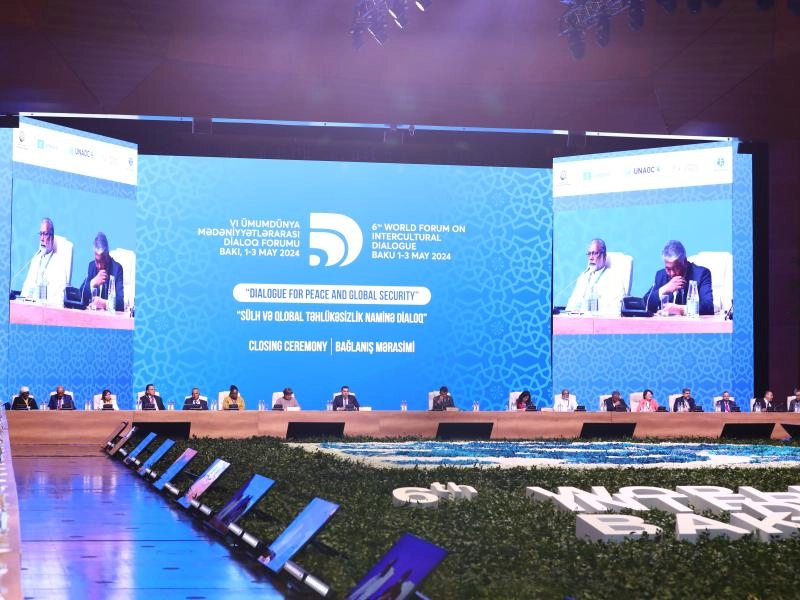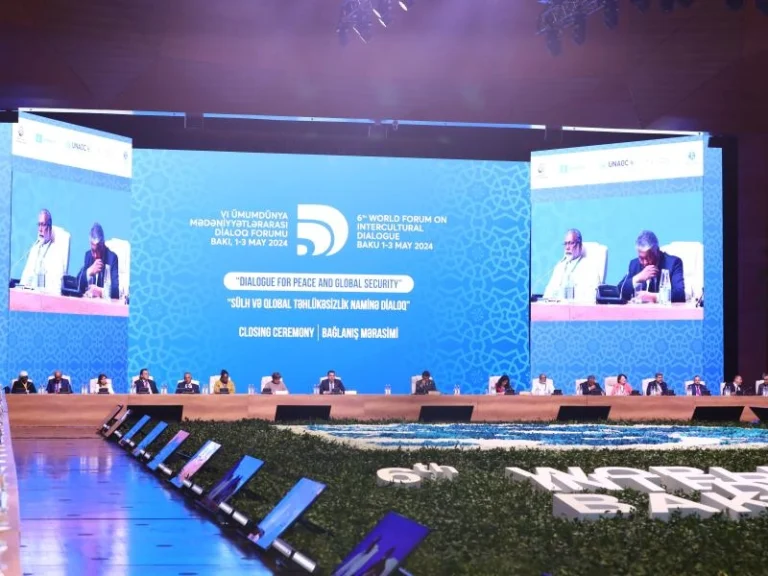
United Nations Tourism Office calls for intercultural dialogue and climate action in the tourism industry
The United Nations Tourism Office participated in the World Forum on Intercultural Dialogue in Baku on the theme “Dialogue for Peace and Global Security: Cooperation and Interconnectivity” along with leading international organizations and government leaders.
The United Nations Tourism Office participated in the World Forum on Intercultural Dialogue in Baku on the theme “Dialogue for Peace and Global Security: Cooperation and Interconnectivity” along with leading international organizations and government leaders.
The 6th Forum was held as part of the Baku Process, launched by President Ilham Aliyev in 2008, and attracted more than 700 participants, including 60 culture ministers from 107 countries. United Nations Tourism, as the sector’s voice, held a special session on the sector’s role in fostering connections in post-conflict societies, with reference to Bosnia and Herzegovina, Colombia and Rwanda.
Opening the main high-level forum, UN Tourism Executive Director Zorica Urosevic said: “At the United Nations Tourism Office, we promote people’s desire to discover the world, make the unknown more attractive, forge new connections between strangers, and build bridges to tourism because it opens minds. Please regain the strength to bridge the gap.”
Participating in the third high-level meeting of the international organization on sustainable paths towards a greener future, Mr Urosevic highlighted UN Tourism’s efforts towards transformation in this sector. She concluded: “Looking to COP29 in Baku and future cooperation, we encourage all stakeholders to participate in the transformation of the tourism sector towards a greener future. Our value chain spans various sectors. and offers numerous opportunities to drive change towards a more sustainable future.”
Top forum for international cooperation
The main objectives of the World Forum for Intercultural Dialogue are the promotion of dialogue, frameworks for cooperation, leadership effectiveness, and the critical link between the complex dynamics of interconnectedness in order to advance the imperatives of global peace and security. It’s about finding intersections. A series of three-day plenary sessions and panel discussions brought together a diverse range of stakeholders, including government officials, representatives of international organizations, prominent cultural figures, journalists, civil society activists, and intellectuals from around the world, to address urgent issues. We discussed the issues. Global challenges. Joining the UN Tourism Partnership in Baku were representatives from the United Nations Alliance of Civilizations (UNAOC), UNESCO and the Islamic World Educational, Scientific and Cultural Organization (ICESCO).
Tourism and Baku processes
The previous Forum was held in 2011, 2013, 2015, 2017 and 2019, with over 250 events and nearly 10,000 participants from 180 countries and 30 international organizations. In light of this legacy, the 6th World Forum was held. The report on intercultural dialogue aimed to further solidify the Baku Process as the premier international platform for promoting intercultural cooperation and dialogue.
The importance of the “Baku Process” has been duly acknowledged by major international organizations, with the UN Secretary-General’s 2017 UN General Assembly Annual Report on Intercultural and Interreligious Dialogue stating that it: It is recognized as a pioneering effort to advocate dialogue between foreign countries. culture. Subsequently, the United Nations General Assembly unanimously adopted a resolution recognizing the Baku Process as a vital global mechanism for promoting intercultural dialogue. Furthermore, at its 215th session, the UNESCO Executive Committee expressed its strong support for the Baku Process and passed a resolution urging all Member States and major international organizations to actively engage in it. It was approved.

